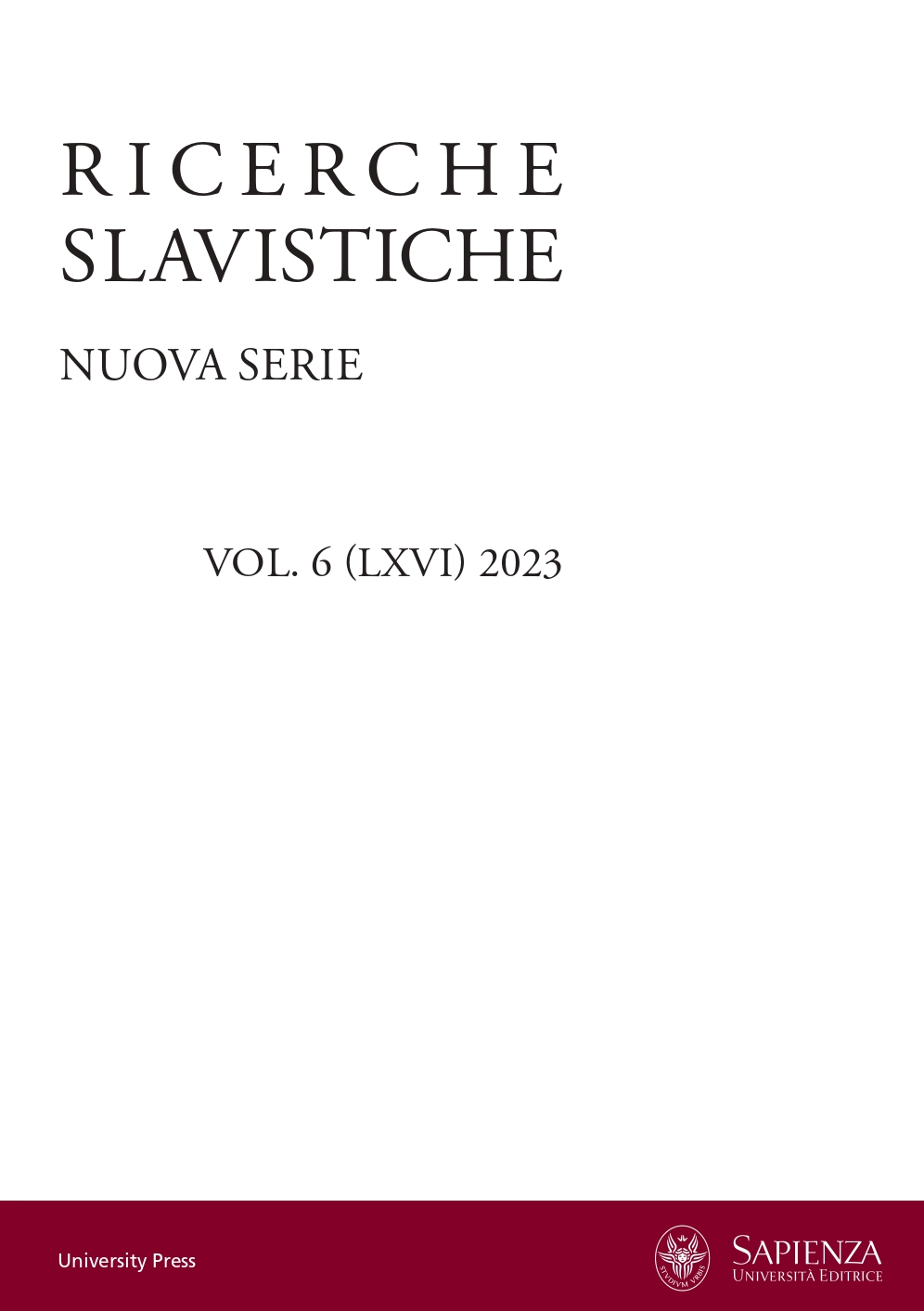Roman Jakobson’s links with the German Press of Prague. The case “Prager Presse”
Keywords:
Roman Jakobson, “Prager Presse”, Czechoslovakia, Structuralism, SymbolismAbstract
This paper examines Roman Jakobson’s involvement with “Prager Presse”, a German-language newspaper published in Czechoslovakia during the interwar years (1921-1939). While Jakobson’s period in Czechoslovakia (1920-1939) has been the subject of several studies, his contributions to periodicals, particularly those in the German language, have remained largely unexplored. Investigating Jakobson’s collaboration with the German press also contributes to a deeper comprehension of the significance of his initial emigration period, preceding those to Scandinavia and the United States. The first part of this paper contextualises the establishment and evolution of German-language periodicals, highlighting the internationalisation of Czechoslovakian cultural milieu. Considerable regard is bestowed upon these periodicals as platforms for the exploration of development of Slavic studies during the interwar years. Subsequently the paper delves into the principal characteristics of “Prager Presse”, shedding light on its foundation and growth. Special attention is devoted to the prominent intellectuals involved in the editorial team, i.e., Arne Laurin, the editor-in-chief, and Antonín Stanislav Mágr. Within this context, the challenge of pinpointing the precise commencement of Jakobson’s association with the newspaper is examined, revealing that it predates the commonly cited date of 1925 found in academic papers. Furthermore, the analysis also delineates an instance of antisemitism of which Jakobson was victim during the early 1920s. A presentation of Jakobson’s activity in the newspaper is provided, focusing on the genres he employed (reviews, celebrative articles, or obituaries) and the topics he analysed, such as T. G. Masaryk. The concluding section is devoted to an analysis of Jakobson’s review of Naděžda Melniková-Papoušková’s monography on the Russian Symbolist Aleksander Blok (1925), serving as an illustrative example of his published writings in the newspaper. This analysis of Jakobson’s review highlights certain typical features of his publicistic writing, including the deviation from conventional review formats and his interest in specific topics, such as the reception of Russian culture abroad.Downloads
Published
2024-03-26
Issue
Section
Strange Relations: About the Co-existence of Languages and Cultures in Central and Eastern Europe


